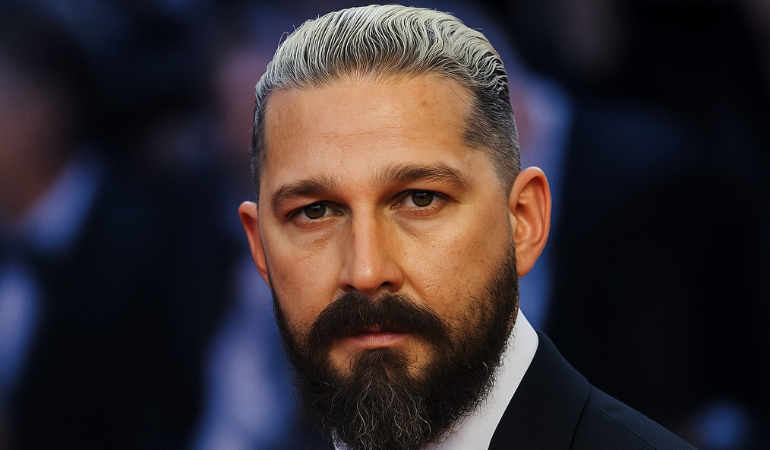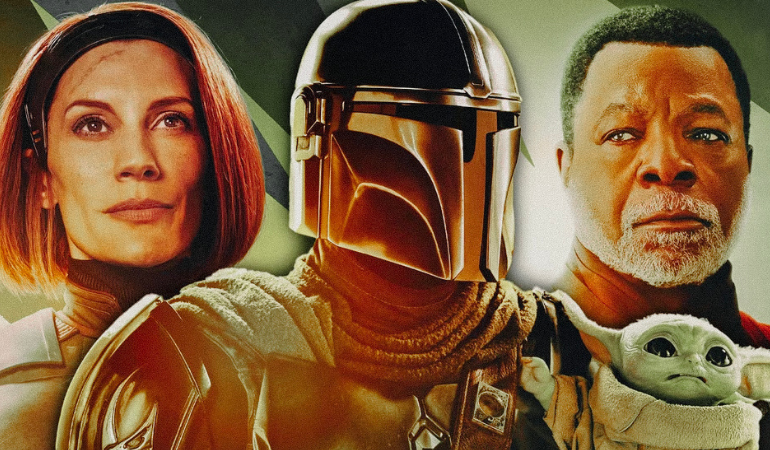Now Reading: An In-Depth Examination of Shia LaBeouf’s Life, Contributions, and Legacy
-
01
An In-Depth Examination of Shia LaBeouf’s Life, Contributions, and Legacy
An In-Depth Examination of Shia LaBeouf’s Life, Contributions, and Legacy

Strong feelings are evoked by the name Shia LaBeouf’s , such as admiration, curiosity, and criticism. With his early Disney days, hit films, controversies, and comebacks, Shia LaBeouf’s life is a Hollywood drama script. You will learn everything there is to know about Shia LaBeouf’s in this essay, including his upbringing, professional growth, errors, and current significance.
I’ll go over his life narrative, major motion pictures, scandals, net worth, and outlook for the future for fans, film students, and anybody else interested in stardom and reinvention. In addition, I’ll provide analysis, insights, and practical guidance.
This is what we will do:
- His early years and background: the ways in which his upbringing shaped him
- Career path: important film roles, turning points, and honors
- Important disagreements and challenges — mistakes and success stories
- Financials and public opinion
- What his story teaches us about celebrity, identity, and perseverance
- A thorough assessment of Shia’s present circumstances and possible future
Let’s begin by going back to where his quest started.
History & Early Life: Shia LaBeouf’s Origins
Hometown, Family, and Childhood
Shia Saide LaBeouf was born in Los Angeles, California, on June 11, 1986. His father, Jeffrey Craig LaBeouf, was a U.S. His mother, Shayna Saide, is an Army veteran with experience in creative arts and floristry. Although his mother’s side of the family is Jewish, his father’s side is Cajun.
LaBeouf’s early years were unstable; he described his childhood as chaotic when his parents divorced when he was a little child.
He grew up in Echo Park before moving to several locations in Malibu and Los Angeles. From a young age, he was drawn to storytelling and acting. According to interviews, he would struggle with movie scenes, school plays, and local theater productions—all of which were early indications of his eventual path.
Early Education & Performance
LaBeouf attended Lincoln Middle School in Los Angeles. His career path toward acting took a drastic shift when he began attending professional auditions in his early adolescence; he is not known to have sought formal higher education.
He became well-known for his charisma, enthusiasm, and quick wit through local performances and stand-up comedy. These early foundations helped him develop his drive and work ethic, which he later depended upon when he switched to cinema and television.
Micro case note: Rather than pursuing formal education, many young performers discuss experimenting (improv, local theater) as a way to build their skill set early on. Throughout LaBeouf’s early years, the pattern is repeated.
Rising to Fame: Important Watersheds in Shia LaBeouf’s Career
Early TV Production and Disney
LaBeouf’s major break came when she played the mischievous younger brother Louis Stevens in the Disney Channel sitcom Even Stevens (2000–2003). LaBeouf’s performance was frequently commended for its emotional passion and comedic timing, and younger audiences adored the act.
For this role, he was awarded the 2003 Daytime Emmy for Outstanding Performer in a Children’s Series. Casting directors and agencies outside of the “child star” category were convinced of his acting prowess, which was vital.
Change to Film: Blockbusters & Indie Scenes
Even Stevens inspired LaBeouf to pursue a career in film. His early cinematic roles included:
- The 2003 film Holes is an adaptation of Louis Sachar’s novel. As Stanley Yelnats, LaBeouf oversaw a group of people that were mostly young.
- Constantine (2005): His co-starring role with Keanu Reeves brought him widespread acclaim.
- He has a small but important role in the science fiction film I, Robot (2004).
But his real rise to Hollywood stardom was sparked by the Transformers franchise. He portrayed Sam Witwicky in Transformers (2007), Transformers: Revenge of the Fallen (2009), and Transformers: Dark of the Moon (2011). These films enhanced his visibility and box office success while ensuring his bankability as an action-star lead.
LaBeouf simultaneously took on more autonomous and adventurous jobs in order to diversify:
- Lawless (2012)
- Fury (2014)
- Lars von Trier directed the 2013 film Nymphomaniac.
These choices showed his range; he wasn’t just a CGI-action star; he was also an actor who didn’t hesitate to attempt new things.
Awards and Recognition
Over the years, LaBeouf has received acclaim at the festival level as well as in the industry. Among the notable acknowledgements are:
- Emmy for Daytime (Even Stevens)
- Independent film festivals’ nominations and awards
- His vulnerable performances received praise from critics.
LaBeouf still often stirs up controversy. He is criticized by some for being overly intense or uninhibited, while others praise his willingness to take chances.
Current and Experimental Studies
In the years since, LaBeouf has experimented more with performance art, underground initiatives, and multimedia projects. For instance:
- He wrote and starred in Honey Boy, a 2019 semi-autobiographical film.
- He appeared in Pieces of a Woman (2020) in a supporting capacity.
- Working together on art installations and small experimental pieces.
These demonstrate a shift away from well-known blockbusters and toward artists experimenting with hybrid formats and narratives.
Shia LaBeouf: Controversies, Challenges, and Public Concerns
Legal Concerns & Grievances
LaBeouf has been involved in several court cases and allegations throughout the years:
- Assault/Public Disturbances: He was repeatedly arrested for disorderly conduct or public altercations.
- Notably, he was accused of plagiarism in 2013 for his short film Howard Cantour.com, which was remarkably similar to a piece by Daniel Clowes. Then he apologized, saying it was an accidental likeness.
- Sexual Misconduct Allegation: In 2020, actress FKA Twigs filed a lawsuit alleging that she had been sexually assaulted, abused, and distressed by their connection. Even though LaBeouf’s denied some of the accusations, the legal battle attracted a lot of attention.
- Alcohol and Substance misuse: LaBeouf has publicly admitted to having issues with substance misuse and mental health.
Public perception has been tarnished by these arguments, which have periodically eclipsed his talent and raised issues of accountability, atonement, and the cost of fame.
Setbacks in Hollywood Careers and Trust Issues
Because of his chaotic and unpredictable behavior, LaBeouf has occasionally been described as a “volatile” talent. Access to costly studio projects may be limited as a result of this reputation. Several directors and producers have privately or publicly stated that they are reluctant to work with him.
Attempts at Redemption and Personal Growth
In recent years, LaBeouf has seemed to be making an effort to repair and rebrand:
- He has participated in therapy and made public remarks about mental health.
- Based on his experiences with trauma, youth, and his father, Honey Boy (2019) is often viewed as a form of personal reckoning.
- His artistic pursuits emphasize sensitivity and reflection over show.
He has many critics, and many people are still suspicious of him. These behaviors, however, suggest that he is not content to rest on his past and that he wants to continue evolving.
Public Opinion and Finances
Sources of Income and Net Worth
Although estimates vary, Shia LaBeouf’s net worth is commonly said to be between USD 25 and USD 30 million (as of current published figures). His primary revenue streams consist of:
- Pay for movies (particularly those from well-known franchises)
- Royalties, residuals, and profit-sharing
- Publicity, appearances, and licenses
- Installations and experimental art (less profitable)
These estimations might not include debt, taxes, or complicated contracts, as is the case with many celebrities.
Credibility and Brand
There is disagreement among the public over LaBeouf.
On the one hand:
- He is praised by admirers for his audacity, tenacity, and passion.
- His readiness to display vulnerability is valued by his supporters.
- He is regarded by some as an “artist’s artist.”
On the other hand:
- Critics see self-destruction or irresponsibility.
- Because of the volatility risks, some studios are hesitant.
- Some viewers doubt his sincerity.
LaBeouf’s legacy is still up for debate since pop culture hasn’t fully embraced or denounced him.
Perspectives from Shia LaBeouf’s Journey
Based on my examination of LaBeouf’s experience, here are several helpful takeaways and cautions:
- Compounds That Can Help You Succeed Early But Can Also Get You In Trouble
LaBeouf’s Disney origins helped him gain momentum and popularity. However, unless broadened, early branding as a kid actor could pigeonhole someone. To break free from that pattern, he had to struggle.
Recommendation: Don’t let your early positions restrict your choices. Look for initiatives that can help you expand your knowledge. - Take on Risk, but Manage the Repercussions
He maintained his artistic vitality with his selection of independent, provocative films. But danger leads to retaliation. Some experiments cause reputational harm, and not all of them are successful.
Advice: Use cautious boundaries when innovating. Analyze your companions and be ready for anything. - Transparency and vulnerability are advantageous, but they cannot reverse past mistakes.
Compassion is fostered by public talks of LaBeouf’s hardships. Transparency, however, does not negate past errors or legal requirements.
Suggestions: Be accountable, own up to mistakes, and demonstrate consistency over time. - The Need for Patience in Reinvention
Shia LaBeouf’s transformation takes time. He is still evolving from a hugely popular celebrity to an experimental artist.
Recommendation: Legacy builders should consider years rather than quarters. Reinvention is not a race, but a journey. - Take Charge of Your Story
His statements, how he was portrayed in the media, and court documents have all been the subject of controversy. In a celebrity’s career, storytelling is just as important as skill.
Advice: To safeguard your story, form a reliable advisory group that includes managers, public relations, and lawyers.
An Overview of Shia LaBeouf’s Present Circumstances
- Origins & Motivation: A restless, fervent artist was influenced by a turbulent upbringing.
- Balance of Commerce & Craft: He alternates popular movies like Transformers with independent art flicks.
- Controversy as Character: Credibility is hampered by his legal and public issues.
- Reinvention in Motion: The pursuit of artistic maturity is seen in projects such as Honey Boy.
- Uncertain Legacy: His narrative is still unresolved; some people admire him, while others mistrust him.
What’s Up Next for Shia LaBeouf’s ?
Future Projects & Routes
LaBeouf keeps taking unorthodox routes, including art installations, short films, and intensely intimate performances. He might prefer independent, lesser projects to big-budget studio productions. This may make him an auteur or underground icon if it works.
Possibility and Danger
He still runs the risk of relapsing or suffering setbacks to his reputation. However, he might be able to serve as a case study for redemption and reinvention if he continues to be creative and grow personally.
Creators who are flawed but genuine may get fresh appreciation as audiences change. Although Shia’s place in that ecosystem is yet unknown, his quest never ceases to enthrall.
Notes for Practitioners on Content and SEO Strategy
Shia LaBeouf’s profile has a lot of content potential from an SEO standpoint:
- Combining biography, scandals, films, and net worth allows you to target a variety of search objectives.
- Evergreen + timely updates: Add new sections whenever there are new movies or court cases.
- Multimedia integration: To increase engagement, include stills, videos, and trailers.
- Internal linking: Provide links to relevant film reviews, debates, or movie pages (Honey Boy, Transformers).
- To engage users, include timelines, frequently asked questions, and “Where is he now?” modifications to increase dwell time.
- Maintain impartial reporting that is based on facts rather than prejudice.
To Sum Up
Shia LaBeouf has lived a turbulent, provocative, inspirational, and admonishing life. The high stakes of early popularity, the price of taking a chance, and the protracted road to redemption are all reflected in his story. His story is far from ended, regardless of whether he is seen as a tortured genius, a flawed celebrity, or both.
LaBeouf is still a complex figure who alternates between praise and criticism. His upcoming actions could redefine what it means to be artistically courageous in the present era for those who are attentively observing.
FAQs
Q1: Who is Shia LaBeouf and what makes him famous?
U.S.-born Shia LaBeouf is an actor and performance artist. He rose to fame thanks to the Transformers franchise and the Disney series Even Stevens. Intimate revelations, contentious public deeds, and experimental films have also brought him notoriety.
Q2: What are the best Shia LaBeouf films to watch?
Notable movies include Transformers (2007), Holes (2003), Fury (2014), Honey Boy (2019), and Nymphomaniac (2013), which combine creative depth with commercial success.
Q3: Which conflicts has Shia LaBeouf been involved in?
He has been arrested for unruly behavior, accused of plagiarism (most famously in 2013), and sued by FKA Twigs in 2020. He has also been candid about his battles with mental illness and substance misuse.
Q4: How much money is Shia LaBeouf worth?
His estimated net worth, which comes from film income, royalties, and creative collaborations, ranges from $25 to $30 million USD.
Q5: How is Shia LaBeouf doing right now?
LaBeouf is now working on experimental and introspective projects. A move away from popular celebrity and toward intricate, individualized craftsmanship is demonstrated by movies like Honey Boy and different art installations.
Q6: Is Shia LaBeouf still employed in the film industry?
His recent focus is on independent and art-driven projects, however he is also involved with certain major productions. Some big studio prospects might be limited by his notoriety.













